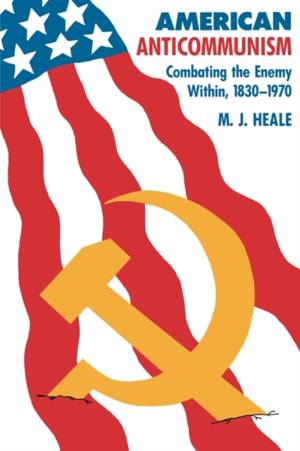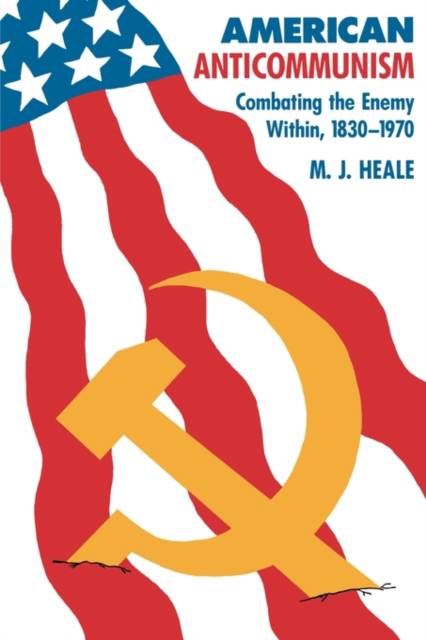
- Afhalen na 1 uur in een winkel met voorraad
- Gratis thuislevering in België vanaf € 30
- Ruim aanbod met 7 miljoen producten
- Afhalen na 1 uur in een winkel met voorraad
- Gratis thuislevering in België vanaf € 30
- Ruim aanbod met 7 miljoen producten
Omschrijving
Although the term anticommunism is relatively new, the phenomenon it described has deep historical roots in the United States. Even before publication of the Communist Manifesto, Heale explains, many Americans were already forming an idealized image of their country as a Christain republic of self-reliant white men--hardly fertile ground for Marxist socialism. Heale shows how fears of foreigh ideologies and suspicion on nineteenth-century immigrant groupds healped shake American anticommunism during the age of industrialization. He then examines the period from the 1930s to the 1960s, when class conflict abated but politicians and bureasucrats had their own reasons for embracing a zealous anticommunism.
Heale concluded tha American anticommunism is not only more deep-rooted but also more rational than is often though. Hard-headed calculatoons about radicals at home and communist successes abroad were closer to the heart of red scare politics than mindless hysteria. It was the misfortune of the American Left, he argues, that it not only was linked to international revolution but also was large enough t obe noticed yet small enough to be crushed.
Specificaties
Betrokkenen
- Auteur(s):
- Uitgeverij:
Inhoud
- Aantal bladzijden:
- 256
- Taal:
- Engels
- Reeks:
Eigenschappen
- Productcode (EAN):
- 9780801840517
- Verschijningsdatum:
- 1/10/1990
- Uitvoering:
- Paperback
- Formaat:
- Trade paperback (VS)
- Afmetingen:
- 162 mm x 235 mm
- Gewicht:
- 353 g

Alleen bij Standaard Boekhandel
Beoordelingen
We publiceren alleen reviews die voldoen aan de voorwaarden voor reviews. Bekijk onze voorwaarden voor reviews.









